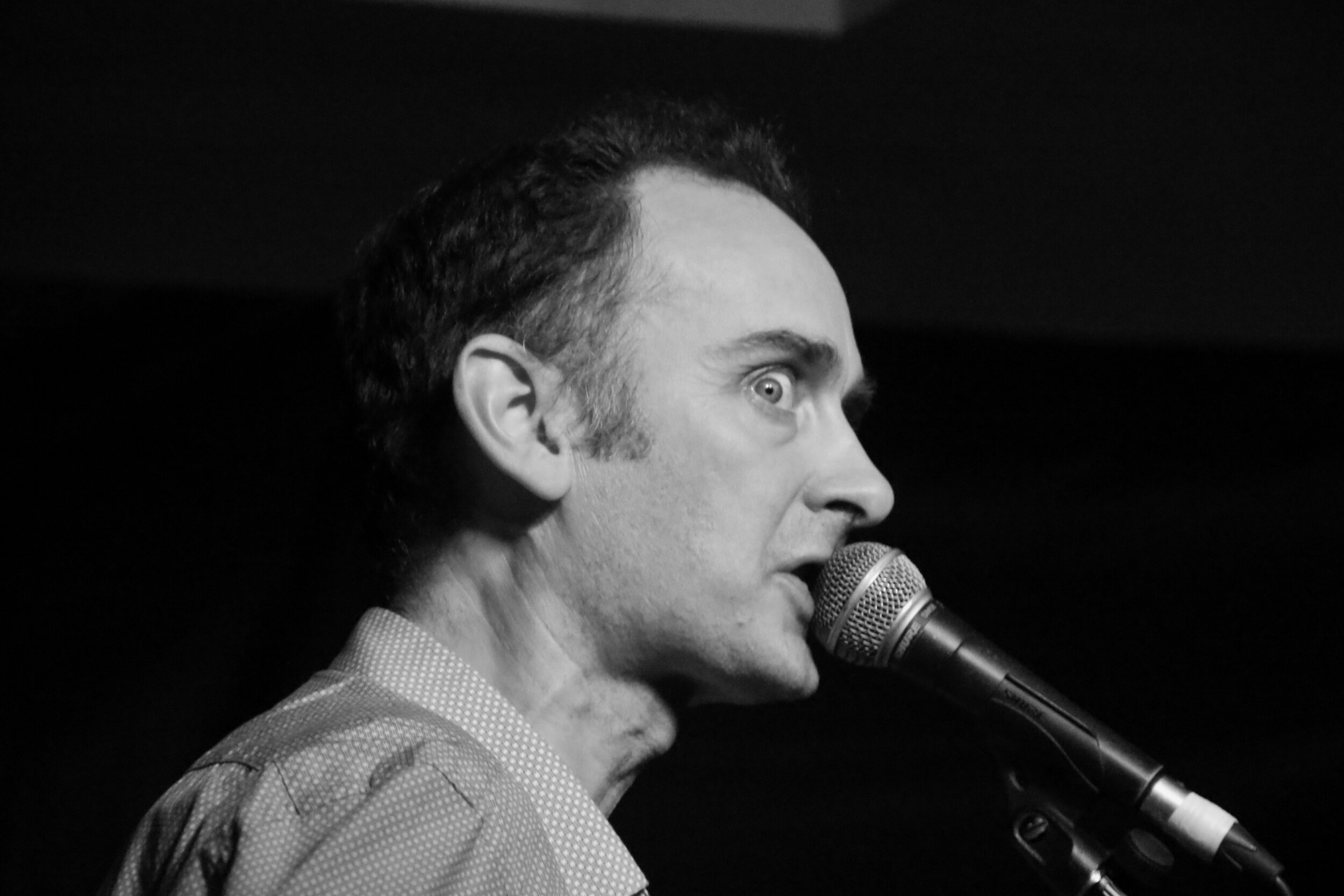How did you become involved in the Punk Scholars Network? In early September 2012, Mike Dines phoned me up - we had never met before but he suggested a chat on the phone, during which we agreed that there seemed to be growing numbers of people studying punk, aside from the two of us. I mentioned Alastair Gordon (or 'Gords', as I had always known him in the punk scene - I had actually read his study of Crass and anarcho-punk in the 1990s without realising until years and years later that Gords and Alastair Gordon were one and the same person!) as someone who had been studying punk for a long time, and suggested that Mike make contact with him. Mike did so, and the two of them called a meeting of interested parties to be held at De Montfort University in Leicester, where Gords worked then as now. At the meeting were the aforementioned three, plus Russ Bestley, Matt Worley, Rich Cubesville, Rich Cross, Gareth Dylan-Smith and Paul Harvey. We agreed that the name should be 'Punk Scholars Network' (I preferred 'Network of Scholarship on Punk' but was out voted) and made plans for a first event which happened at Reading a few months later with several of the same people in attendance. I believe the next event was 'Yes Sir, I Will', a symposium on Crass and anarcho-punk which I organised in Summer 2013 at Oxford Brookes (where I was an Early Career Fellow at the time). The rest is history - PSN has grown large, and much more diverse (I think the steering committee is now 50/50 male-female, for example), which is good to see. I have remained very active in the PSN throughout and am proud to be part of the network - I think it's champion! (Although obviously I'm ideologically opposed to championships and all modes of competition, etc. etc.)
Why do you feel it's important that a network for those involved in the study of punk/punks exists? Well, this question really goes back to the questions which Raymond Williams, Richard Hoggart and others began wrestling with in the late 1950s. What is a suitable topic for study in universities? The founding principle of cultural studies is that all kinds of popular culture are worthy of study: detective magazines, comic books, 'butchers assistants and bell hops... the lady who put the little plastic robins on the Christmas cakes' and so forth (that last bit is a Buzzcocks reference, if you didn't twig it, by the way). If universities are going to study opera, why not punk? Punk is made by people, society is made up of people, and if you want to understand society and culture then it makes sense to take a look at what people are doing.
All that said, punk is a particularly interesting strand of popular culture: as Hebdige noted way back, it sends out interesting mixed messages, but there's a lot more to it than that; it straddles left wing, right wing and sometimes says 'you can stuff the lot', it encourages people to create their own culture in distinctive ways and so forth. In short, punk is an interesting product of 20th century culture, but it has taken a surprisingly long time for it to be studied properly (by which I mean, in its totality, as opposed to just looking at the 1970s UK blip which some treat as 'the' punk moment but which anyone who investigates the matter at hand seriously should realise is just one instantiation of something which is larger both geographically and historically).
It's important that such study takes place within a network format because it allows people to compare notes, learn from each other, test out theories from well-informed peers and so forth. PSN is also important as a network because it has allowed quite a few bright sparks from outside of academia to stick a toe through the door of the ivory tower, enabling a valuable breaking down of the kind of isolation of researchers from 'participants' which ethnographers and ethnologists have of course been striving towards for decades and decades. You get a lot of talk about 'impact' beyond academia in the contemporary scholarly field, but PSN really does have that: it has created a field where 'organic intellectuals' of a somewhat Gramscian type can share ideas with, well, people who have read Gramsci and people who 'don't care about any of that, I just like the music, me' and that mix has produced some really interesting network events over the nearly 8 years in which PSN has been going.
Tell us a bit about your own (punk) research? I graduated in 1992 from Sunderland Poly (it was a Uni by the time I finished) and kicked about in the punk scene for the next 10 years (see next section) without considering further study at all. In 2003, however, I decided to do a Masters in Music at Newcastle Uni, mainly because I had talked myself in to a job teaching Music in a secondary school, so I thought I ought to try to get a qualification of some kind in music (!). I enjoyed the MA and got a Distinction.
One night, I was sat next to Richard Middleton (legend of 'popular' musicology) in the pub after a symposium, and I told him some of my thinking about how punk is really like a tradition, kind of like a folk tradition in a sense. Middleton said he thought this was interesting and different, and could make a good PhD study topic. I decided to go for it, and spent 2006 to 2011 studying said topic under his supervision. I then published the PhD as a monograph on Ashgate in 2012 under the title Anyone Can Do It: Empowerment, Tradition and the Punk Underground. Since then, I've continued publishing the odd article and book chapter on punk, and of course have been heavily involved in PSN and also, more recently, the Punk and Post-Punk journal (of which I am Associate Editor). But I've also done research on other kinds of popular music, and on music education. I still think I want to say more about punk and post-punk music, however, and am currently working on a monograph about so-called 'indie' music and its emergence as a genre category in the 1980s: I hope to publish that in the coming couple of years.
What is your connection to punk/background in punk? As with quite a few of the founding members of the PSN (Mike Dines, Matt Worley and I think some others are in the same ballpark), I was born in 1970, so I grew up conscious of punk but was too young to have participated in its 'first wave' in the UK. I got really into Stiff Little Fingers, Buzzcocks, Undertones and the like in my teens, and eventually (through John Peel) got really into the emergent 'indie' guitar scene of the period: I saw groups like the Pastels and the Shop Assistants as being very punky, and noticed regular references to 'punk rock' in relation to such bands in the fanzines I used to buy. I didn't really care whether I had a punk look, and when I arrived at Sunderland Poly in 1989 most people called me an 'indie kid' but I always loved punk (I even painted 'The Pastels' on the back of my leather jacket as a kind of subversion of certain norms).
In Summer 1992, my girlfriend at the time Rachel Holborow and I discovered the emergent Riot Grrrl scene and we got heavily involved in that, setting up our own sort-of record label called Slampt and forming a few bands together (Pussycat Trash, Avocado Baby, Red Monkey - and I formed my own indie-punk group Milky Wimpshake in 1993, which is still going to this day). Rachel and I became close friends with Huggy Bear, who hipped us to the US wave of 'emo'-related groups (we called them emo at the time, anyhow, nowadays I think people might say 'post-hardcore) on Gravity Records: Born Against, Universal Order of Armageddon, Heroin, etc. We got really quite in to hardcore punk, and it was only then that I really started to learn about some of the most interesting punk of years gone by: Gang of Four, Raincoats, even Crass; it might sound odd, but Crass totally slipped under my radar in the 80s, so I got pretty lost in the mid-1990s tracking down anarcho-punk, post-punk and US punk classics that I should have heard but hadn't.
So yeah, it was a long love affair with punk for me, from loving the Jam when they would appear on Top of the Pops circa 1980 to hanging out with Ian Mackaye at the Dischord house (at the latter's invitation, no less) in 2001. By then, I gained enough subcultural capital to seem like someone who really knew about punk. Despite decades of touring the European squats and all those basement shows in the US which we did with Red Monkey for several years, however, and despite all the studying of punk in more recent times, I still sometimes think I have no idea what punk is. Which is fine. I don't care if I'm not really a 'proper' punk, and I always loved a line which I read in a copy of the Homocore fanzine which I picked up some time in the early 1990s: 'How I Learned to Stop Worrying and Fuck Punk up the Ass'. That's the one, innit; that, in a nutshell, is my real connection to punk.
Pete Dale is Senior Lecturer (Music and Sound) at Manchester Metropolitan University. His monographs include Anyone Can Do It: Tradition, Empowerment and the Punk Underground (Ashgate, 2012), Popular Music and the Politics of Novelty (Bloomsbury, 2016) and Engaging Students with Music Education: DJ Decks, Urban Music and Child-centred Learning (2017). Further information on Pete’s academic work can found on our About PSN page.

